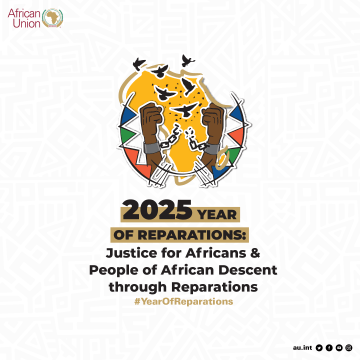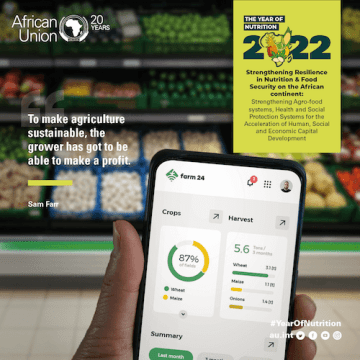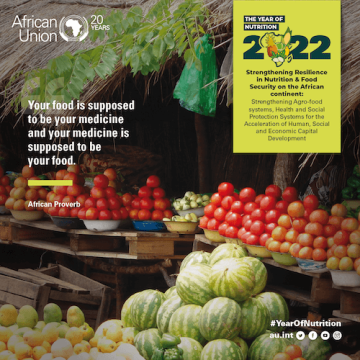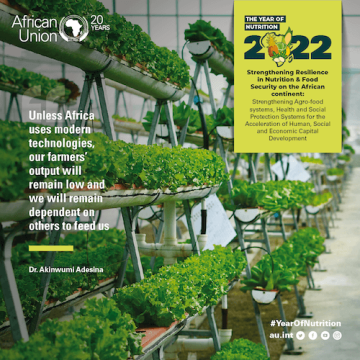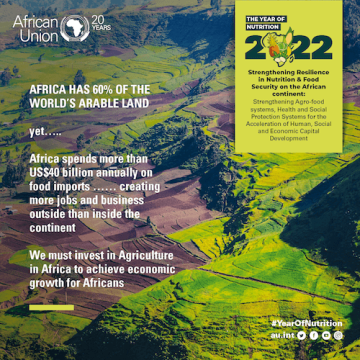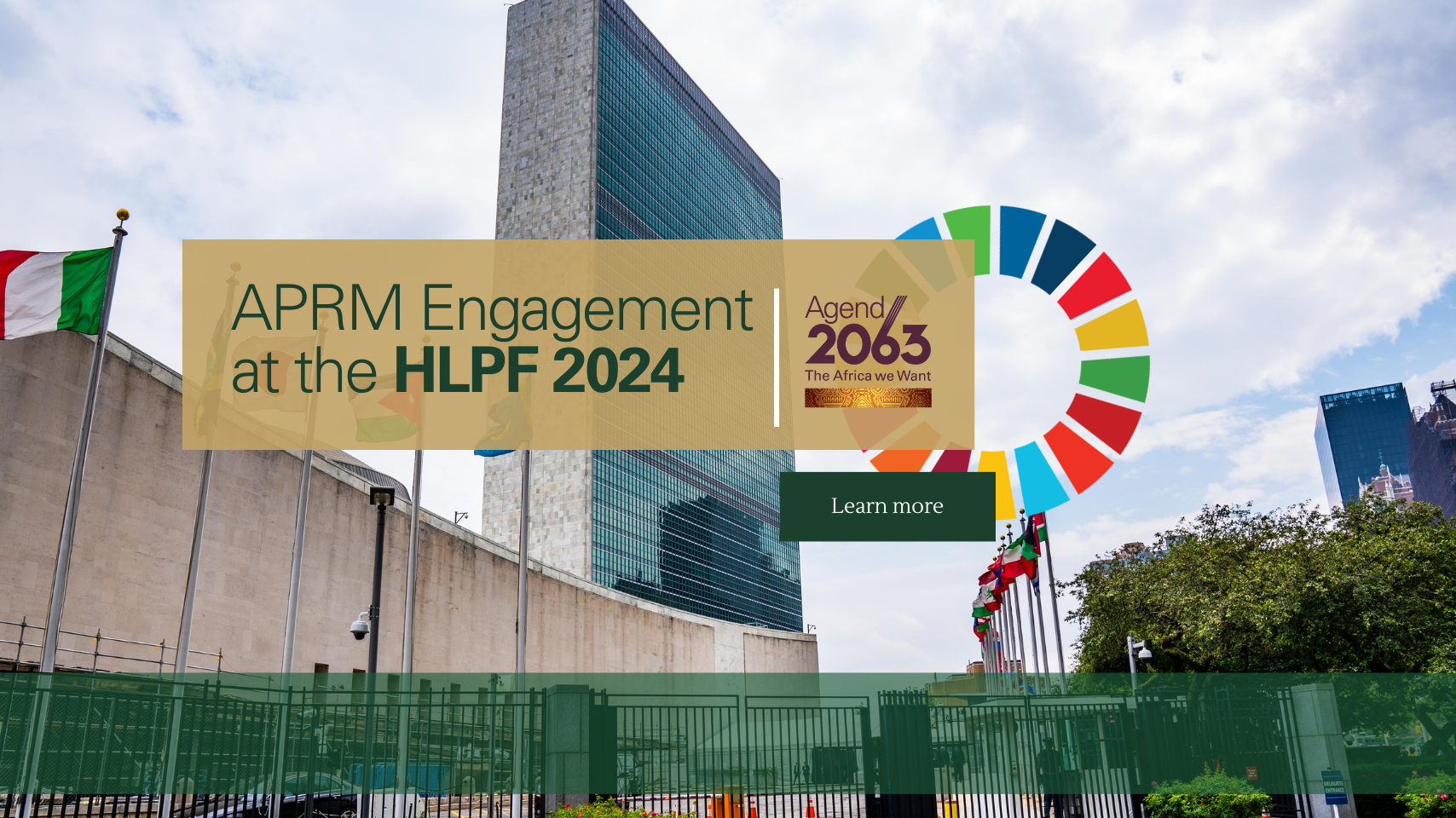
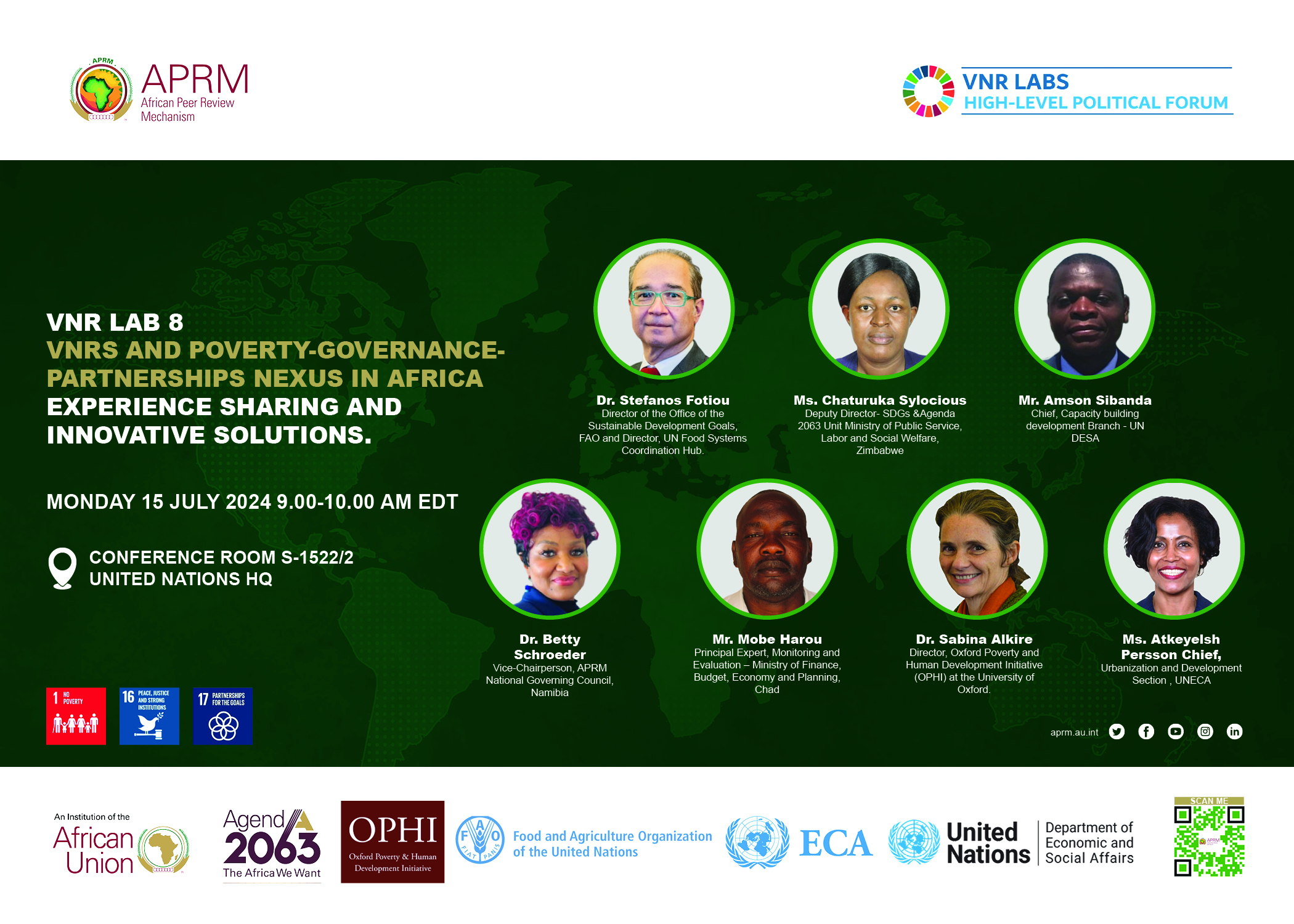
VNR Lab 8: VNRs and Poverty-Governance-Partnerships Nexus in Africa: Experience Sharing and Innovative Solutions"
Monday 15 July 2024, 9.00-10.00 am. EDT
Conference room S-1522/2 - United Nations HQ
Concept Note and Agenda
Organizers
the African Peer Review Mechanism (APRM)/African Union, Food Agriculture Organization (FAO), and the United Nations Economic Commission for Africa (UNECA)
Description
Poverty reduction is a universal goal endorsed by the United Nations and other continental frameworks including Agenda 2063 “the Africa we want”. The African continent has the highest number of Least Developed countries worldwide (LDCs) and equally most contested poverty levels in certain countries i.e., Chad, Congo, and others. Having that said, some African countries have made good strides to reduce poverty levels during the past decade. The Voluntary national reporting process has been quite significant to assist countries in tracking governance policies and the government's interventionist approach to eliminate poverty.
The assessment of the first-ten year implementation plan of Agenda 2063: the Africa we want (2013-20230 reveals that progress towards reducing poverty rate in Africa is uneven and various African countries need to improve social protection and equality policies to address the multi-faceted poverty trends across the continent. On the same vein, the OPHI research on Africa concluded alarming findings concerning the intensity and proliferation of poverty across the continent, particularly the countries which are going through conflict/post -conflict conditions including Chad, Congo, and Sudan amongst others.
Needles to equally emphasize that public institutions and effective civil service as endorsed in SDG 16–effective institutions and peaceful societies, which meets Aspiration Three of Agenda 2063 -Africa with good governance and strong leadership, remain imperative to combat poverty through participatory policies to address most-vulnerable groups. Effective institutions can help countries to mitigate poverty, from institutional and policy perspectives, guided by “Leaving No One Behind” principle. There has been also sound evidence that progress on key aspects of SDG 16 (namely, transparency, accountability, and participation and inclusion) has enabling effects on aspects of SDG 1 (No Poverty)- which is also critical for recovery from COVID-19.
This LVNR Lab intends to highlight the significance of the VNR process to report on poverty reduction and associated governance practices from a holistic perspective. It discusses interlinkages of SDG1, SDG 2 and SDG 16 and how partnerships (SDG 17) contribute to achieve the latter goals in Africa. It equally facilitates peer-to-peer learning by inviting selected African countries to share their different approaches and experiences in poverty reduction from a multi-dimensional perspective as well as the efforts endorsed by different organs in pursuant of such a goal.
Organized by: APRM, in partnership with UNECA and Oxford Poverty and Human Initiative (OPHI)
Guiding questions
• What concrete measures or actions has your country undertaken address poverty challenges and how COVID-19 crisis contribute to improve/derail these actions?
• What are main lessons, success stories and examples of good practices related to addressing poverty and hunger issues and how has your regional collaboration within the AU/RECs supported this?
• To what extent can international organizations, oriented initiatives like OPHI better help countries in fostering digital government in support of the 2030 Agenda for Sustainable Development and other international or regional agendas (e.g., Agenda 2063)?
Format
The Lab will last for one hour and will be held in person at the UNHQ. It will be an interactive dialogue with different African and international speakers who will make initial interventions (max. 10 minutes). A moderated open discussion will follow, based on the questions presented above. Speakers are invited to address questions and comments in short and focused responses. Use of PowerPoint presentations is discouraged. The VNR lab will take place under the Chatham House Rule to allow for candid discussions. This also applies to the use of social media during the event.
Language
The VNR lab will take place in English only.
Contact Person:
Mr. Jean- Yves Adou, Acting Director, Monitoring and Evaluation Directorate, APRM continental Secretariat
Ms. Sara Hamouda, Agenda 2063 and SDGs continental governance program, APRM Continental Secretariat
Draft agenda
Moderated by UN DESA Amson Sibanda, Chief, Capacity building development Branch.
9.00-9.05 am Opening remarks – Ambassador Marie-Antoinette Rose Quatre
Chief Executive Officer, APRM Continental Secretariat
9.05-9.10 am Ms. CHATURUKA SYLOCIOUS, Deputy Director- SDGs &Agenda 2063 Unit Ministry of Public Service, Labor and Social Welfare, Zimbabwe
9.10-9.20 am Mr. Mobe Haru, Principal Expert, Monitoring and Evaluation. Ministry of Finance, Budget, Economy, and Planning, Republic of Chad
9.20-9.30 am Dr. Betty Schroeder, Vice-Chairperson, APRM National Governing Council - Namibia
9.30-9.40 am Prof. Sabine Alkire, Director, Oxford Poverty& Human Development Initiative (OPHI)
9.40-9.50 am Dr. Stefanos Fotiou, Director of the Office of the Sustainable Development Goals, FAO and Director, UN Food Systems Coordination Hub.
9.50 – 10.00 am Ms. Atkeyelsh Persson, Chief, Urbanization and Development Section/ UNECA
9.57- 10.00 am Vote of thanks – APRM Continental Secretariat
Click here to Register: Registration Form - VNRs and Poverty-Governance-Partnerships Nexus in Africa

